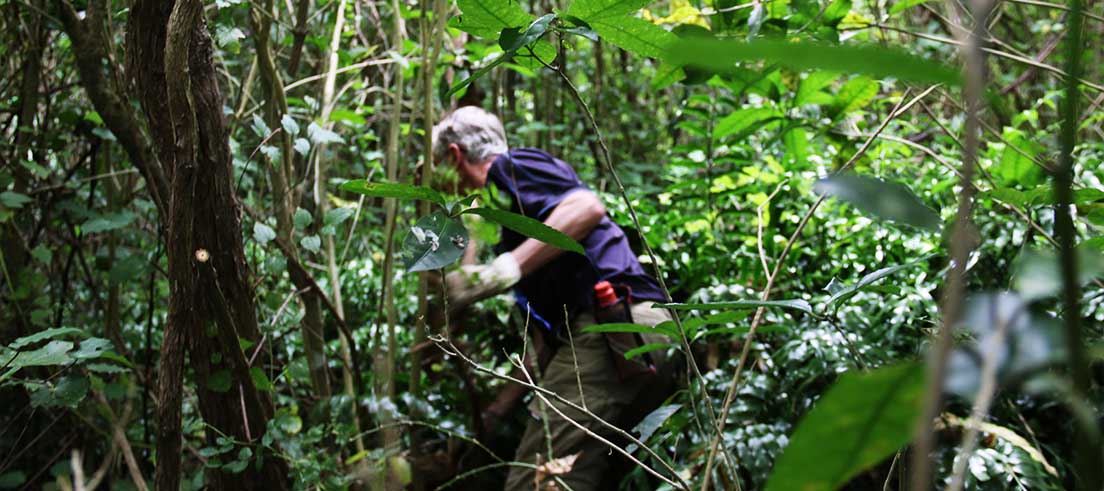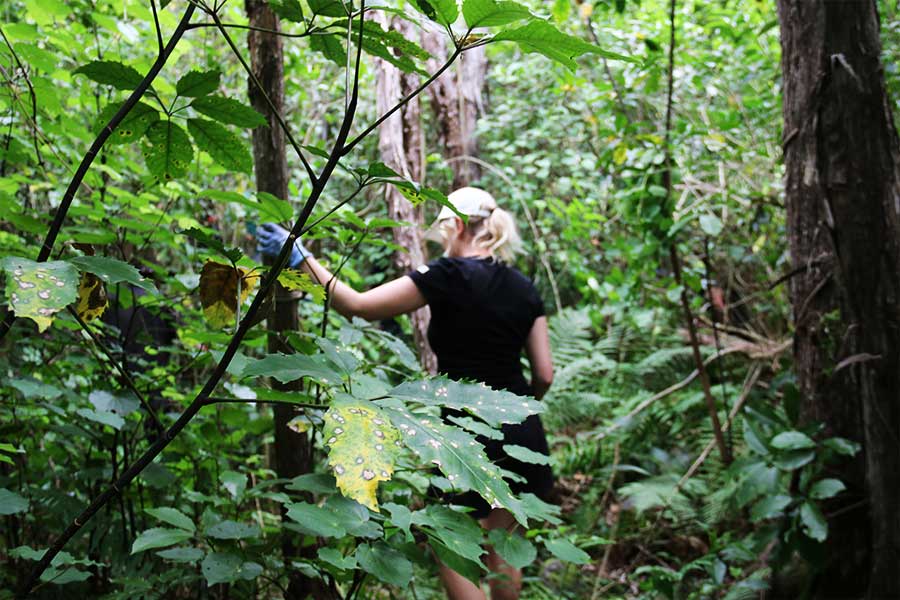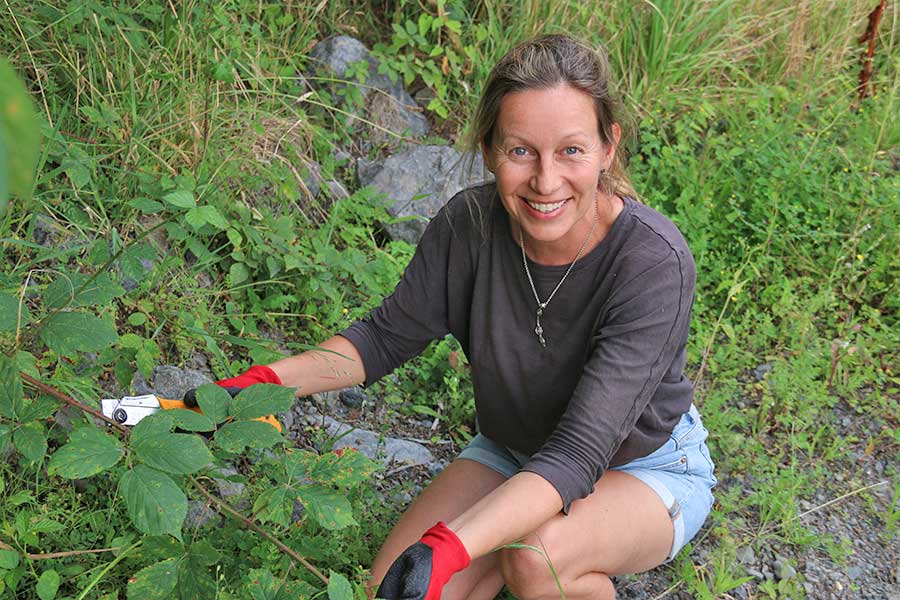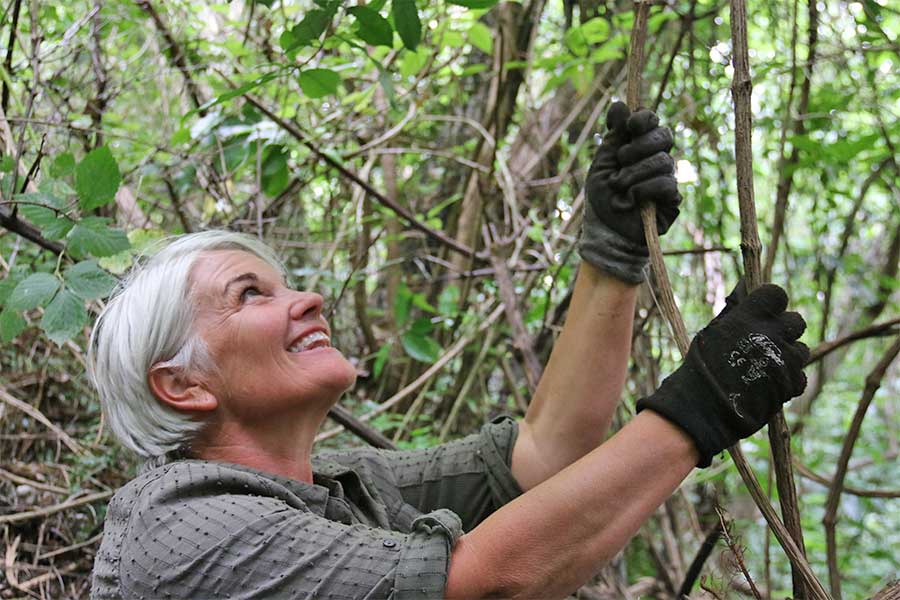
Likeminded landowners tackle local weed problem
A recent weedy workshop, the second in a series at Kaikōura’s Hāpuku catchment, brought locals together to tackle common invasive pest plants.
The weedy workshop, which took place in mid-February, drew interested residents to a section of the Kaikōura Trail off Grange Road that follows along the Hāpuku riverbank.
On this bushy section, a group of landowners and community members were given tips for spotting and removing common weedy vines in the area, including cathedral bells, old man’s beard, banana passionfruit, and german ivy.
Local biodiversity officer, Heath Melville, demonstrated the most effective technique for removing the common vine, cathedral bells. This involves following the vine, cutting the plant off at soil level, and painting the remaining stump with herbicide (weed killer).
Following demonstrations from our staff, the group journeyed into the bush to have a go at identifying pest plants and practicing their newly learned weeding skills.
Weed management is a community responsibility
Landowners along the catchment agreed that weed control needs to be a coordinated and collective effort to improve environmental outcomes.
“It’s important because it’s a bigger issue than any agency can push on their own. It’s all our responsibility to do our bit to look after our native species by getting rid of what shouldn’t be here,” said Heli Wade, neighbouring landowner.
“Learning techniques and connecting with others on the same wavelength is good.”
Wade’s neighbour, Happy Young, agreed that pest plants are everyone’s problem, noting that the number and density of weeds in the area is “frightening” but opportunities like weedy workshops are educational.
Vision for the future of Kaikōura’s Hāpuku catchment
Attendees were hopeful about the impact their removal of invasive plant species can have on the environment
Wade’s vision for the future of the catchment is to have the weeds controlled and new incursions kept to a minimum.
“I hope that native species will flourish and that there’ll be lots of native birds and insects living here,” said Wade.
Report this pest: If you have seen or suspect the presence of any of those pests report the sighting to us.
Get in touch
If you have any questions about our weedy workshops or would like to discuss or get involved, you can call the project leads directly:
Heath Melville on 027 263 7459
Jodie Hoggard on 027 551 5902



